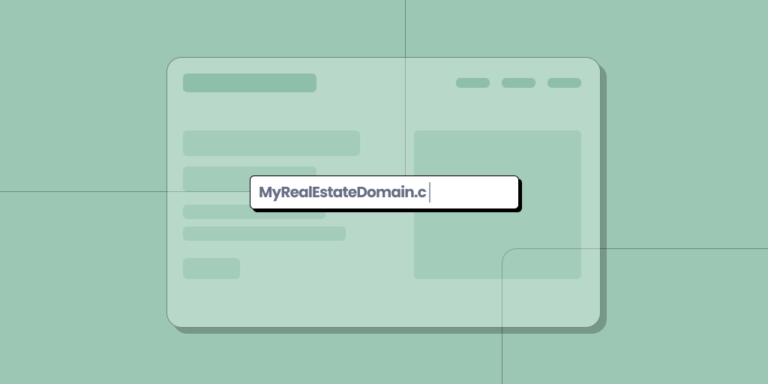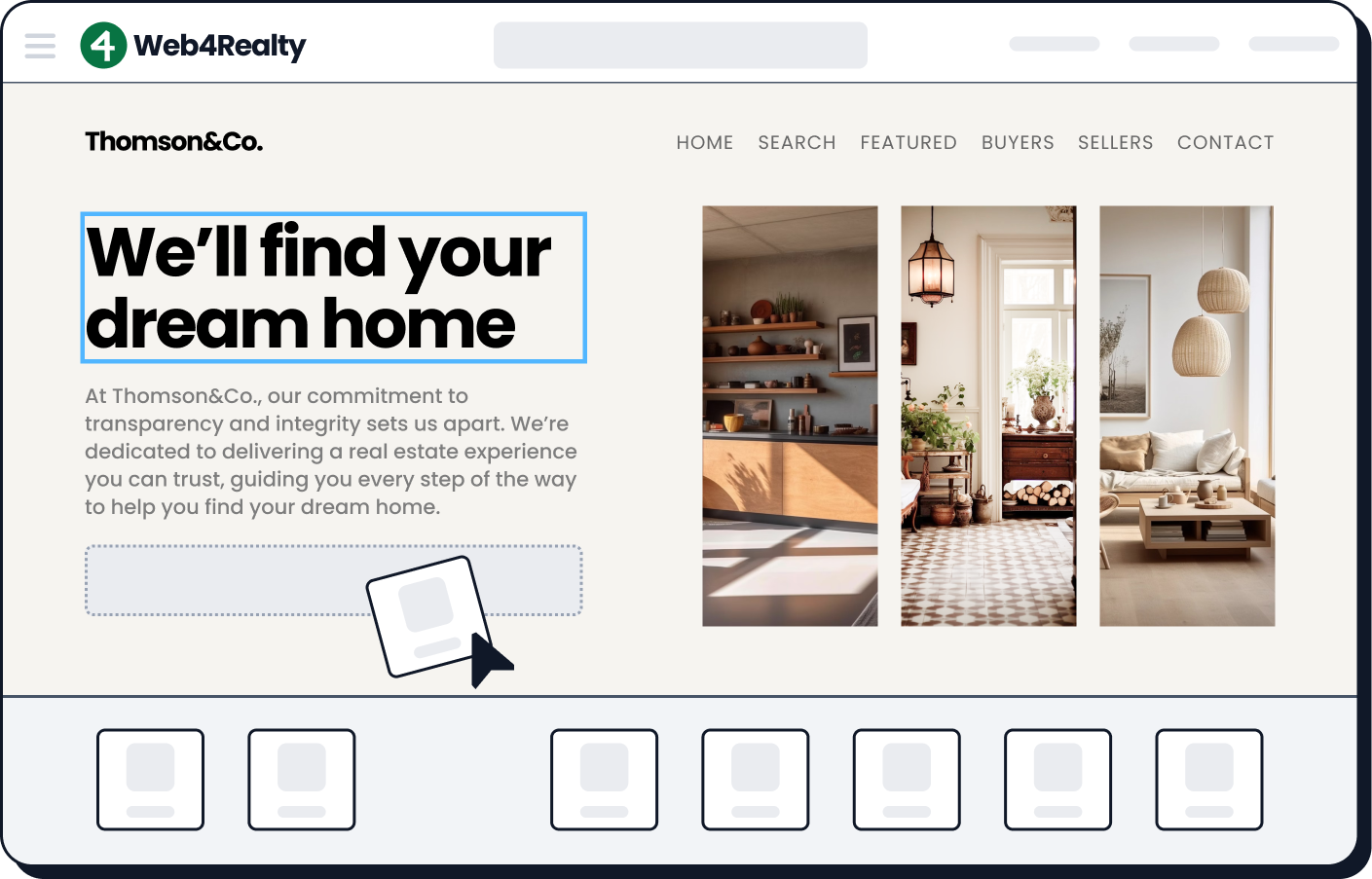Picking a good domain name for your real estate website might seem like a no-brainer. But a lot can go wrong if you’re not careful, and simply choosing a domain with “www.yourname.com” isn’t the only thing you have to do to rank in today’s SEO algorithms and attract discriminating homebuyers.
The good news is that by knowing some of the common missteps real estate agents make when choosing their domain name, you’ll be able to avoid similar pitfalls. Here are four of the most common mistakes that real estate agents make when selecting their website domain name, and what you can do to avoid them.
1. Not Being Concise
While it’s great to have your domain name be as informative as possible, you want your domain name to be short and sweet. Ideally it will be easy to remember and simple to type into a browser. For example “www.yourname.com” is probably the easiest, yet one of the most effective, domain names for realtors. Imagine if a potential client heard a radio advertisement mentioning your website while driving in the car. Would they be able to remember it by the time they got home? If it’s something like “www.mike-smith-sells-toronto-townhomes.com”, then odds are they won’t.
It’s great to own the domain for you actual name, but sometimes it’s too long or its simply not available and you’ll need to explore other options. Try combining some of your name, along with a term indicating you’re a realtor. Common words to play around with are “realty”, “realtor”, or “homes”. The web domain name for Toronto real estate agency Slavens & Associates is a great example: www.slavensrealestate.com. It indicates who they are and what they do in a simple, easy to remember fashion.
2. Failing to Include Your Location
When someone is searching online for real estate agent, most of the time they’re looking for someone in their area. And even if they’re searching in other markets, they’ll still be entering the name of that particular area into the search engine. That’s why it’s a good idea to include something location-specific in your domain name, so you’ll appear higher in the local search results that truly matter to getting new clients.
And it doesn’t have to be overly complex. Take Port Credit agent Monique Leblanc-Smith’s domain, for example: www.portcreditagent.com. When her website appears in search results, it’s clear to people that this an agent in the Port Credit area, and make them more likely to click through. Another approach is to secure a .ca domain name if you’re located in Canada, for instance, assuming the .com you want is unavailable (we’ll get more into this later).
3. Keyword Stuffing Your Domain
Packing your domain name and URLs is no longer a “cheat” to get ranked higher by Google. According to Moz, Google and other search engines’ algorithms have moved far beyond rewarding sites that “keyword stuff” domain names. Keyword stuffing can actually be a detriment, as these websites often appear “spammy” to people and deter them from clicking through. So if you’re an agent that specializes in selling condos in Toronto, avoid the temptation to register a domain like “www.toronto-canada-real-estate-agent-condominiums” thinking that the keywords will boost your SEO.
That’s not to say including keywords in your domain isn’t a bad thing. You just want it to be concise and informative to the user as to what you do actually do. Mississauga real estate agent Sharon Reid does this well with her domain: buymississaugacondosforsale.ca. All the words in the domain are considered relevant keywords, but they’re presented in a simple, useful way that explains the agent’s specialty.
4. Avoiding a .com Because it’s More Expensive
With many .com websites being snapped up, there’s been a lot of hype around alternative domain suffixes. Particularly in real estate, “.realtor” has been gaining popularity. However, don’t be fooled, as the .com suffix is still king when it comes to SEO. If the exact .com you’re looking for isn’t available, try some of tweaks and tactics mentioned above to find one that is. Even if it’s a bit more expensive others, owning your own .com is well worth the investment.
Just consider the fact that people simply aren’t all that used to domains outside of .com. Even .net and .org are still somewhat outside of the mainstream, often used for non-profits, NGOs and the like. Choosing a .realtor suffix will likely confuse people, and they’ll probably enter a .com after the .realtor thinking it’s the right thing to do. So do yourself a favor, if the domain name you’re set on doesn’t have a .com available or you think it’s not worth the expense, think again.
Final Thoughts
Whether you’re an agent that’s new to the game, or a seasoned vet looking to expand your business with a new website, think long and hard about how your domain name will affect SEO and clarity of communicating your brand to potential clients. By taking the right steps like registering a .com and including your location, you’ll give yourself the best chance to end up in the good graces of Google’s search algorithm and (more importantly) homebuyers in your area.





